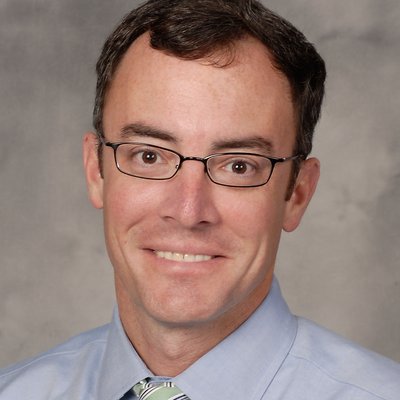Mental Health Stigma Has Weakened, But There’s Still More Work To Do
World Mental Health Day is held annually on October 10. The main purpose is to both raise awareness about mental health issues and promote resources that will bolster our mental well-being.

Syracuse University psychology professor Kevin Antshel is a clinical psychologist and director of the clinical psychology program in the College of Arts and Sciences at Syracuse University. He has provided extensive commentary on topics around anxiety during the pandemic.
Professor Antshel talked with our team about why the topic of mental health continues to dominate headlines and national conversations, and the challenge of tackling this issue on a deeper level.
Q: Since the start of the pandemic, there seems to be a growing recognition of the importance of mental health. In what ways do you think COVID-19 forced us to focus more on this issue as a collective society?
A: In my opinion, one of the few positive derivatives of the COVID-19 pandemic is the reduction in mental health stigma. While still present, mental health stigma – stereotypes, prejudice and discrimination towards those with mental health conditions – has been weakened over the past 31 months. This is likely due to at least two factors. First, COVID-19 has increased our contact with people with mental health conditions. Decades of stigma research has indicated that lack of contact with stigmatized groups creates fear and discomfort. By virtue of the significant increases in mental health conditions, we have had increased contact with others who have mental health conditions. Second, COVID-19 has also increased our own personal experiences with mental health symptoms and conditions. Thus, many of us now have improved knowledge of mental health and know more about the impact of mental health.
Having improved mental health literacy and increased contact with others who have mental health conditions has likely synergistically reduced mental health stigma. With lower mental health stigma, mental health is discussed more openly. The universal experience of managing uncertainties associated with a global pandemic left many of us with the same emotions. This shared experience, when coupled with reduced mental health stigma, has allowed us to collectively focus more on mental health at the societal level.
Q: How has social media played a role as well?
A: Social media has quickly become a central health communication tool. This is not surprising given that many of us are online for significant portions of the day. The user-generated nature of social media permits mental health experiences and information to be shared. For example, Instagram, Facebook and Twitter offer opportunities to obtain peer support and mental health information online. (There are more than 20 billion views of #mentalhealth on Tiktok.) At the same time, there are also unmistakable mental health challenges associated with social media use (e.g., cyberbullying can lead to increased depression, mental health mis/disinformation, etc.). In this way, social media is a rather paradoxical mental health promotion tool, possessing both a positive and negative side.
Q: Celebrity endorsement and acknowledgment has also added to the growing discussion around mental health. Rapper Meghan Thee Stallion launched a mental health website recently featuring links to free therapy organizations and other mental health resources like helplines. Do the news headlines and conversation signal there’s a real shift around people’s approach to their mental health? Or does this feel like a catchy phrase without much substance?
A: Within the past 31 months, I have been invited to give talks at multiple local schools about pediatric mental health. There is certainly more awareness and conversations around mental health. In my opinion, awareness and conversations are a nice start but in and of themselves are insufficient for truly changing how our society views people with mental health challenges and mental health disorders. At the individual level – especially in younger generations such as Gen Z and Millennials – mental health is now considered much like physical health. Celebrities like Rapper Meghan Thee Stallion and broader celebrity culture are particularly influential for younger generations. In this way, more celebrities could help to facilitate mental health promotion and encourage mental health to be considered much like physical health. Efforts to continue the focus on mental health should also not fall entirely on the feet of today’s younger generations. Health care professionals – not just those focused on mental health but also those working in primary care settings – could become stronger and more vocal advocates on social media to further educate the public about mental health conditions and challenge mental health stigma.
To continue this seismic shift in attitude, individuals need to continue to press for policy level initiatives to provide improved access and availability of evidence-based and culturally competent mental health treatment. To truly move this issue forward in a meaningful way, mental health stigma reduction should not focus on simply public education and attitude change. Rather, legislative and policy level changes are likely required to further people’s approach to their own mental health.
To request interviews or get more information:
Daryl Lovell
Associate Director of Media Relations
M 315.380.0206
dalovell@syr.edu | @DarylLovell
news.syr.edu | syracuse.edu
Syracuse University


